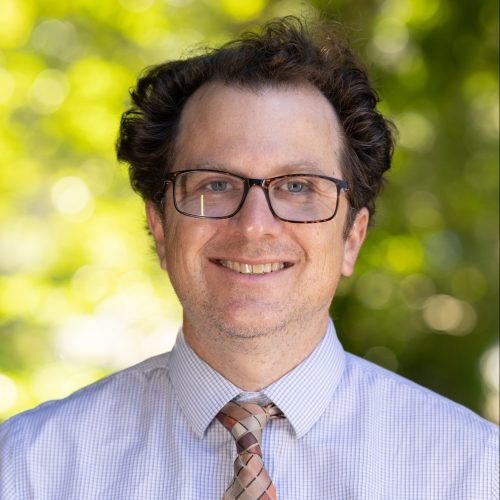
Scott Williams, Ph.D.
Associate Professor of PhilosophyContact Information
Office Hours
- Monday 1:30 pm - 2:45 pm
- Wednesday 1:30 pm - 2:45 pm
- Note: And by appointment via Google Meet. All office hours are virtual. Students should email Dr. Williams to make and confirm appointments.
Biography
Assistant Professor of Philosophy, Scott Williams has a D.Phil. from the University of Oxford in Medieval Philosophy and Theology. Dr. Williams is a member of the American Philosophical Association, the American Academy of Religion, and the Society for Medieval Logic and Metaphysics.
Education
- D.Phil. University of Oxford
- M.St. University of Oxford
- M.A. Trinity Evangelical Divinity School
- B.A., B.A. San Francisco State University
- Cert. in Film New York University, S.C.E.
Courses Taught
PHIL 100 Introduction to Philosophy
PHIL 101 Introduction to Logic
PHIL 200 Introduction to Ethical Theories
PHIL 230 Introduction to Metaphysics and Epistemology
PHIL 255 Medieval Philosophy
PHIL 303 Philosophy of Religion
PHIL 315 Islamic Philosophy
PHIL 321 Philosophy of Disability
HUM 214 The Medieval and Renaissance World
Professional Interests
Dr. Williams's teaching and research interests include metaphysical and epistemological issues in Latin medieval philosophy and theology. He is currently revising his Ph.D. dissertation for publication; the title will be Henry of Ghent on the Trinity. Further, Dr. Williams has edited a book, Disability in Medieval Christian Philosophy and Theology (Routledge, 2020), and has co-edited a special issue of the journal TheoLogica on conciliar Trinitarianism (2020). His recent publications have focused on intersections between the history of personhood and disability, or on the metaphysics of personhood and mind in Trinitarian theology. His recent article “In Defense of a Latin Social Trinity: Response to William Hasker,” Faith and Philosophy, 37.1 (2020) develops his thinking about the metaphysics of personhood and mind as informed to some degree by the history of personhood, conciliar theology, and insights from contemporary philosophy of disability.
Recent Publications
- “Unity of Action: A Latin Social Model of the Trinity,” Faith and Philosophy 34.3 (2017), 321-346.
- "John Duns Scotus," in The Oxford Handbook of the Epistemology of Theology, eds. William Abraham and Frederick Aquino, Oxford: Oxford University Press, 2017, 421-433.
- “Bibliography of Henry of Ghent,” in Henry of Ghent website <https://philosophy.unca.edu/engage/henry-of-ghent/>, 2018, 1-156. Support from an NEH Grant with Prof. Gordon Wilson (Emeritus Prof. of UNCA).
- “Horrendous-Difference Disabilities, Resurrected Saints, and the Beatific Vision: A Theodicy,” Religions 9, 52 (2018) 1-13. Republished in Theodicy, ed. Jill Graper Hernandez, MDPI, 2019.
- “Persons in Patristic and Medieval Christian Theology,” in Persons: A History, ed. Antonia Lolordo, Oxford: Oxford University Press, 2019, 52-84.
- "When Personhood Goes Wrong in Ethics and Philosophical Theology: Disability, Ableism, and (Modern) Personhood," in The Lost Sheep in the Philosophy of Religion: New Perspectives on Disability, Gender, Race and Animals, eds. Blake Hereth and Kevin Timpe, Oxford: Routledge, 2019, 264-290.
- “Henry of Ghent,” in The Encyclopedia of the Philosophy of Religion, eds. Stewart Goetz and Charles Taliaferro, Wiley-Blackwell, 2020.
- “In Defense of a Latin Social Trinity: Response to William Hasker,” Faith and Philosophy, 37.1 (2020), forthcoming.
- “Disability, Ableism, and Anti-Ableism in Medieval Latin Philosophy and Theology,” in The Edinburgh Critical History of the Middle Ages and Renaissance Philosophy, eds. Richard A. Lee and Andrew LaZella, Edinburgh: Edinburgh University Press, 2020, 37-57.
- "Why There Wasn't, and How There Can Be, a Latin Social Trinity," in Claiming God: Essays in Honor of Marilyn McCord Adams, eds. Shannon Craigo-Snell and Christine Helmer, forthcoming.
- Disability in Medieval Christian Philosophy and Theology, ed. Scott M. Williams, Oxford: Routledge, 2020 (308pgs).
- "Introduction: The Intersection of Disability in Medieval Christian Philosophy and Theology," in Disability in Medieval Christian Philosophy and Theology, ed. Scott M. Williams, Oxford: Routledge, 2020, 1-21.
- "Personhood, Ethics, and Disability: A Comparison of Byzantine, Boethian, and Modern Concepts of Personhood," in Disability in Medieval Christian Philosophy and Theology, ed. Scott M. Williams, Oxford: Routledge, 2020, 80-108.